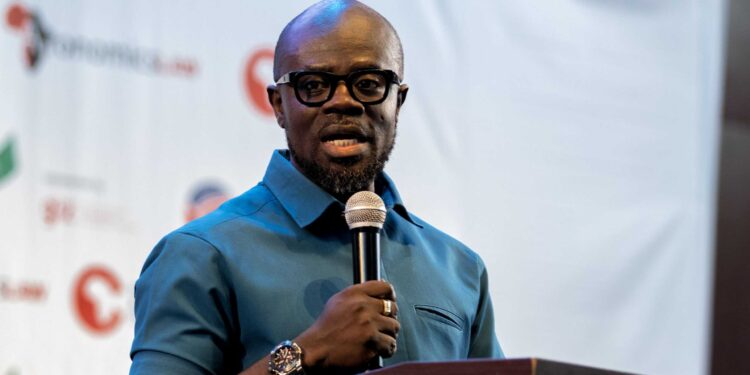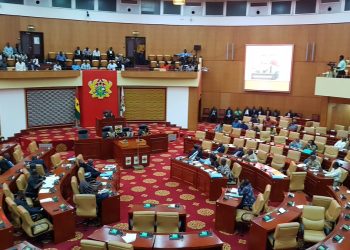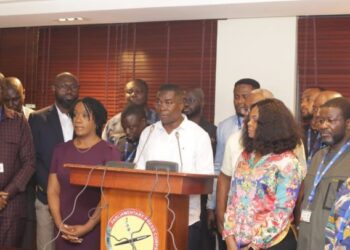Professor Ernest Kofi Abotsi, Dean of the UPSA Law School, has sparked debate on Ghana’s development strategies, criticising what he describes as “lazy governance” driven by debt-financed infrastructure projects.
In a post on X (formerly Twitter), Prof. Abotsi took aim at the practice where political parties use borrowed funds to finance large-scale infrastructure projects, which they later tout as achievements.
“Debt-driven development has become a race to the bottom by the two parties. It is easy! Borrow billions and claim to have built the most infrastructure. Voters will reward them without realising that they the voters bear the pain of future payment. It’s lazy governance & needs to change,” he wrote.
Prof. Abotsi’s comments come at a time when Ghana’s debt stock has reached an alarming GH₵761.2 billion as of July 2024, representing 75.7 per cent of the country’s gross domestic product (GDP). This is a significant increase from GH₵587.7 billion (70.3 per cent of GDP) recorded during the same period in 2023.
The external component of the debt has also surged, rising from US$30 billion in July 2023 to US$31.6 billion in July 2024, which now represents 46.1 per cent of GDP. These figures were disclosed in the Bank of Ghana’s latest Summary of Economic and Financial Data, released in September 2024.
Prof. Abotsi’s critique highlights a critical issue: while infrastructure development is essential for economic growth, financing it through excessive borrowing imposes a heavy burden on future generations.
His assertion that voters reward parties for such projects without fully understanding the long-term economic repercussions, underscoring the need for greater public education on fiscal responsibility.










Discussion about this post